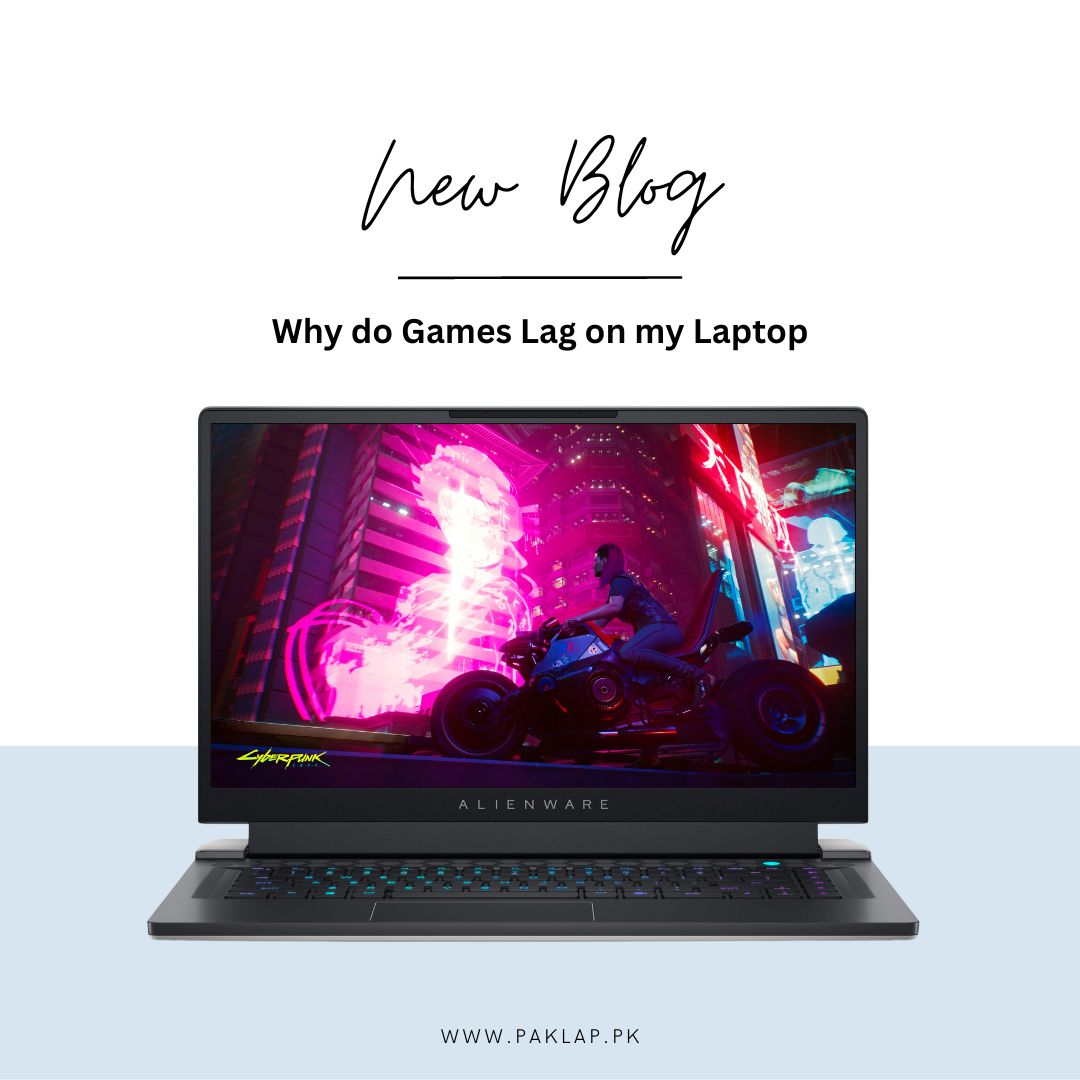Why do Games Lag on my Laptop?

Gamers often worry about lag, which can be a real pain when playing online multiplayer games. Lag not only affects gaming, but it may also impact our browsing and streaming experiences. However, when it comes to gaming, it can be a major turnoff that frustrates gamers to the extreme. It is frustrating to lose in a match or, even get kicked out of the server because of it. But don't worry, lag will not ruin your experience permanently. If you have already tried the classic "turn it off and on again" trick and the lag problem is still there, let's explore some possible causes for this annoyance.
8 Reasons Why Games Lag on a Laptop and Their Solutions!
Gaming on a lagging laptop can be extremely frustrating. So, it is essential to know what's causing the lag and take the required steps to solve this issue. Here are a few reasons why games lags on your laptop:
Insufficient Internet Bandwidth
The amount of data that can be transferred through an internet connection is known as bandwidth. It measures the amount of data in megabits per second (Mbps). But avoid confusing bandwidth with internet speed. Speed is all about how quickly that data moves, whereas bandwidth is all about the amount of data on your network. Furthermore, the bandwidth cap, which can be anywhere from a few Mbps to a few Gbps, is used to describe the data limit. Make sure you have enough bandwidth if you want to play uninterrupted. The bandwidth cap can be reached much more quickly when a large number of users are connected to the same network. If you are experiencing difficulty with your bandwidth, you might want to consider upgrading to a more advanced package that offers gigabit capacity or even removes any limits on data usage. This way, you can enjoy a smoother internet experience without any worries.
Internet Speed Issues
Even having unlimited data will not help much if your internet connection is slow. Many variables can affect your internet speed, some of which may be challenging. The internet may be slow only because of the upload speed. Because gamers need both upload and download speeds, the majority of internet connections have faster download speeds than upload speeds. Try to have an upload speed of at least 3 to 6 Mbps to prevent annoying delays. Fiber internet is the better choice if you are looking for one. This way your upload and download speeds will be balanced as it offers a symmetrical connection. You can quickly test your connection's speed to find out how fast it is. You can do the following to speed up your internet connection:
- Give the router a quick reboot and check if it helps.
- Lower the graphics resolution of your game to minimize your data usage.
- Unplugging devices that are not in use.
- Close applications or websites that might be active in the background. Though not significantly, these things do use up some of your connections.
Unreliable Internet Connection
The speed and reliability of your internet are also influenced by the type of connection you are using. You have got a few choices to pick from, like cable, fiber optics, and DSL. DSL can deliver speeds of up to 100 Mbps, the cable can go up to 1,000 Mbps, and meanwhile, fiber is the superstar capable of reaching a whopping 100 Gbps (which means 100,000 Mbps). Also, you do not have to worry about those outdated dial-up connections any longer causing delays, they are pretty rare nowadays. We would advise choosing fiber internet over the rest if you want the best possible experience. Your gaming sessions will be boosted to a whole new level.
Excessive GPU usage
Gaming laptops come equipped with two types of GPU - a dedicated one and an integrated one. The dedicated GPU, which has its memory (VRAM), is generally more powerful than the integrated GPU. For an enhanced experience, it is recommended to utilize the dedicated GPU. It offers faster image display, resulting in better Frames per Second (FPS) and a smoother playing experience. By using the dedicated GPU, you can enjoy lag-free and stutter-free sessions.
Not Enough RAM
It is quite important to have sufficient RAM to ensure that your CPU can access and update all the data and resources it needs to run games and other programs quickly. If your system does not have enough RAM, your CPU will have to access your SSD or HDD directly, which will be much slower. This can mess with your notebook’s performance and you may notice some delays. Hence, make sure you have enough RAM to avoid these issues and enjoy smooth gaming and program usage.
Inability to meet the Minimum System Requirements
Every software, including games, comes with specific hardware requirements to ensure smooth performance on your notebook. You might experience interruptions while gaming if your laptop does not meet these minimum system requirements. The machine's hardware is probably causing the problem if you notice that your device lags only when playing particular games.
Using Outdated Laptop Drivers
Using outdated drivers may cause delays as well. Update your drivers frequently, specifically the ones for your graphics card, to ensure that your laptop games continue to run smoothly. Updates from companies like Nvidia and AMD are frequently released, adding cool enhancements and fixing annoying bugs. So remember to stay current so you can play laptop games without interruption.
Gaming on a Low-End Notebook at Optimal Settings
Your graphics card has to work hard to produce graphics and process everything when you enable fancy graphic features like anti-aliasing and ray tracing, for instance. As a result, you might experience some lag between what you do and what you see on the screen if your laptop's GPU is not up to the same level.
Final thoughts
Experiencing lag can be super frustrating for gamers, but there is nothing to worry about. The first thing you need to do is figure out what's causing it so you can speed up your laptop. The causes listed above in this blog typically are responsible for the majority of laptop lag. If your device becomes unresponsive for no apparent reason, it might be because you recently installed new hardware, updated your software, opened a corrupt file, or changed some important configuration options. So pay attention to these probable causes. Visit Paklap for more details!





